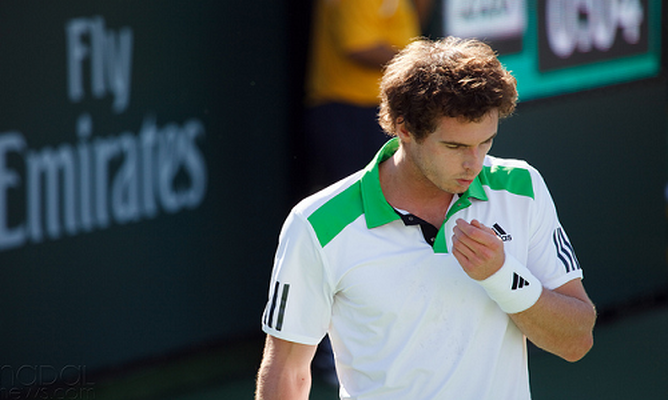This week at Queens University Belfast is graduation week as thousands of students flock to the main Whitla hall to receive the recognition of all their hard work.
I myself will attend a ceremony to receive my Second Class First Division Degree in Law with French for what is truly a momentous occasion in the life of any student, as their academic lives finish and they are now ready for the big bad world.
I myself will attend a ceremony to receive my Second Class First Division Degree in Law with French for what is truly a momentous occasion in the life of any student, as their academic lives finish and they are now ready for the big bad world.
However, in tennis terms will Andy Murray ever be able to take the big step of winning a grand slam which will allow him to ‘graduate’ from contender to champion?
Murray is without doubt one of the greatest tennis players to come from the British Isles. He displays a vast repertoire of shots, and it is hard to find a player on the Tour who has a more complete game.
He also has a fiery temper, and is full of aggression and passion in stark contrast to that of the previous British hopeful ‘Tiger Tim’ Henman, and it is this single minded determination which has kept him within the World’s top 5 best players since September 2008.
How then, can his failure to capture a grand slam be explained? Particularly when he has an 8-5 winning record against arguably the greatest player of all time, the Swiss maestro Roger Federer.
The problem can only be described as psychological, especially when taking into account that it is indeed Federer who he has lost to in two of his three grand slam final appearances, where he failed to even win one set.
In short, Murray withdraws on the big occassions. He lacks the self belief and killer instinct to dominate his opponents and defaults to the mindset of becoming passive and then beating himself up about his mistakes. What is more worrying is that this happens in the crucial moments when mental toughness matters the most. You only have to look to his three grand slam final appearances where he was twice decimated by Federer (US Open 2009 and Australian Open 2010) and recently by Djokovic (Australian Open 2011) to see that Murray needs to change his mentality.
Another worrying element is his failure to learn from experience and come back stronger, a point best illustrated by a look at golf’s new super star Rory McIlroy.
You would have to have been living under a rock not to hear about McIlroy’s capitulation at the gold US Masters earlier this year. In his final round collapse at Augusta the youngster from Holywood, Northern Ireland cut a dejected figure as he slumped over his Titleist driver on the 13th tee after another wayward shot dispelled any dreams he may have had of a maiden Major victory.
In the interviews directly afterwards McIlroy remained resilient in the face of what must surely have been the greatest disappointment in his short career: “I’ll get over it. I’ll have plenty more chances – I know that.”
Indeed, he even joked on Twitter that he had been caught house hunting when he was teased by a good friend from the Ulster Rugby Team about the infamous images of him searching for his tee-shot on the 10th hole.
Amazingly in the next Major following his Masters meltdown, McIlroy completely obliterated the rest of the field and claimed the US Open title by 8 shots without a moment’s hesitation. He has long been touted as the next big thing in golf and many suggest he may go on to dominate as Tiger Woods did.
Equally, critics have hyped Andy Murray as destined to win Major titles. However, compare Murray’s reaction to defeat with McIlroy’s.
Following his 2010 Australian Open defeat to Federer, Murray was inconsolable as he burst into tears at the awards ceremony. Equally, after his two final defeats in Australia, he has fallen into a depression, slumping to defeats against players ranked as lowly as 143 in the World.
He seems to get so down on himself that he fails to take any positive lessons from his defeats. Murray retreats into his shell each time he plays a final, and until he breaks the mould, the Wimbledon Championship will continue to elude him.
Undoubtedly he has the skill and talent to succeed at the highest level, and his form leading up to Wimbledon had been impressive with a semi final appearance at the French Open and a victory on grass at the AEGON Championships.
However, until the enigmatic Scot becomes more aggressive at the crucial moments and learns from his previous mistakes so that he can produce on the big stage, Grand Slam titles will continue to pass between the hands of Federer, Nadal and Djokovic.
Peter Graham


 RSS Feed
RSS Feed